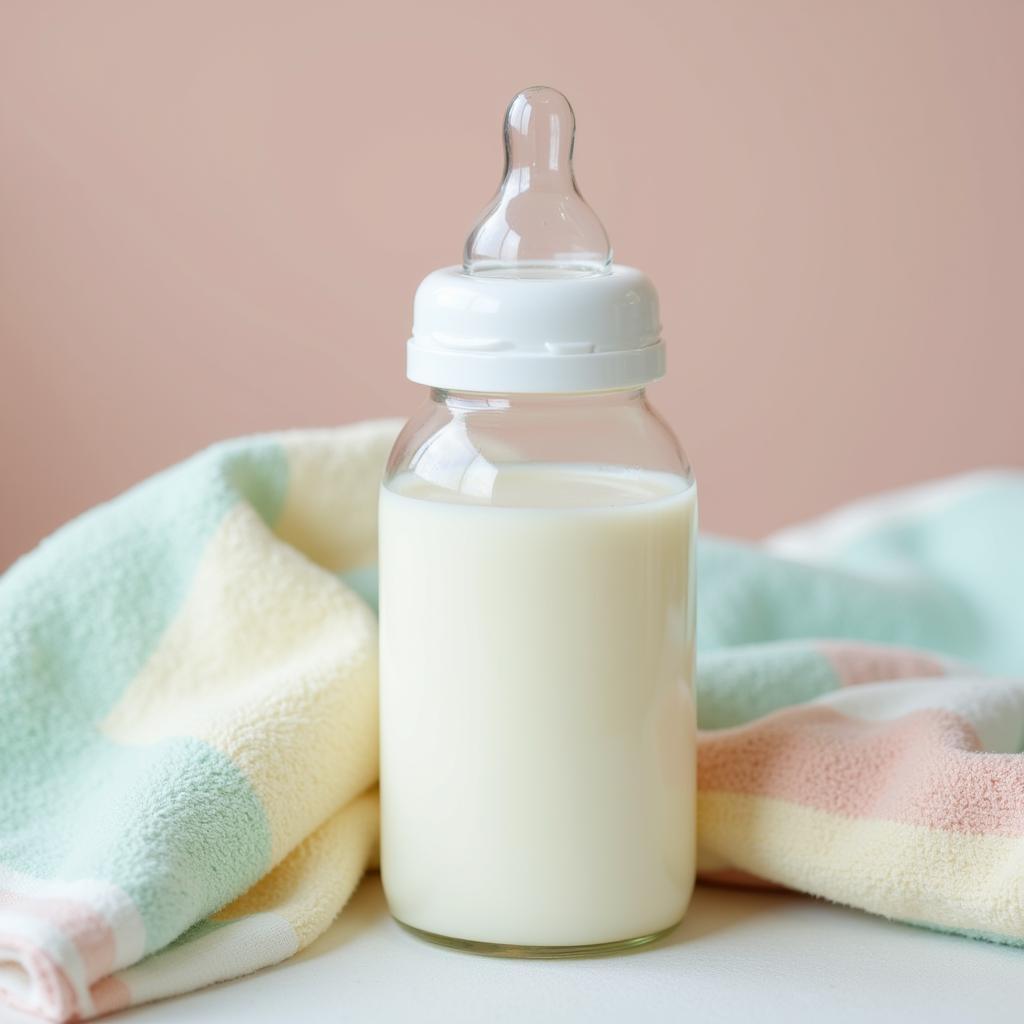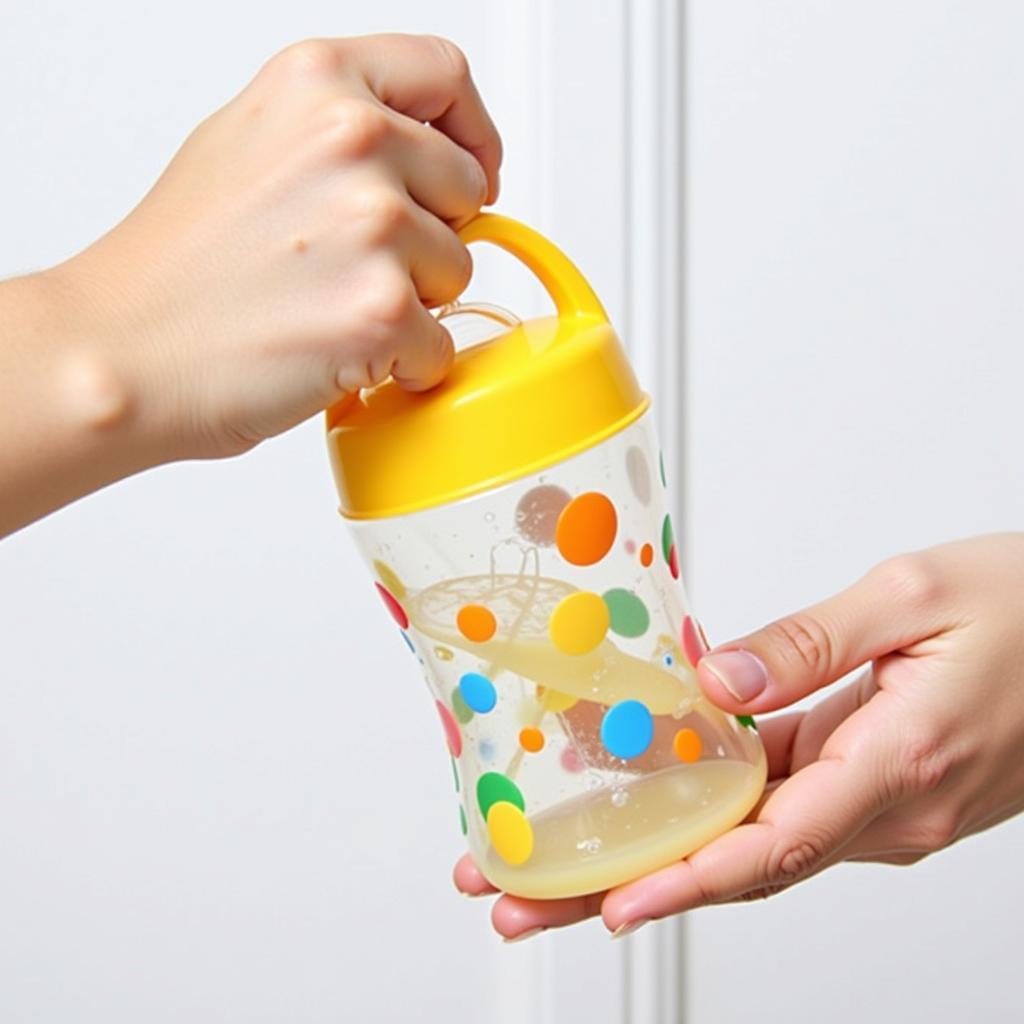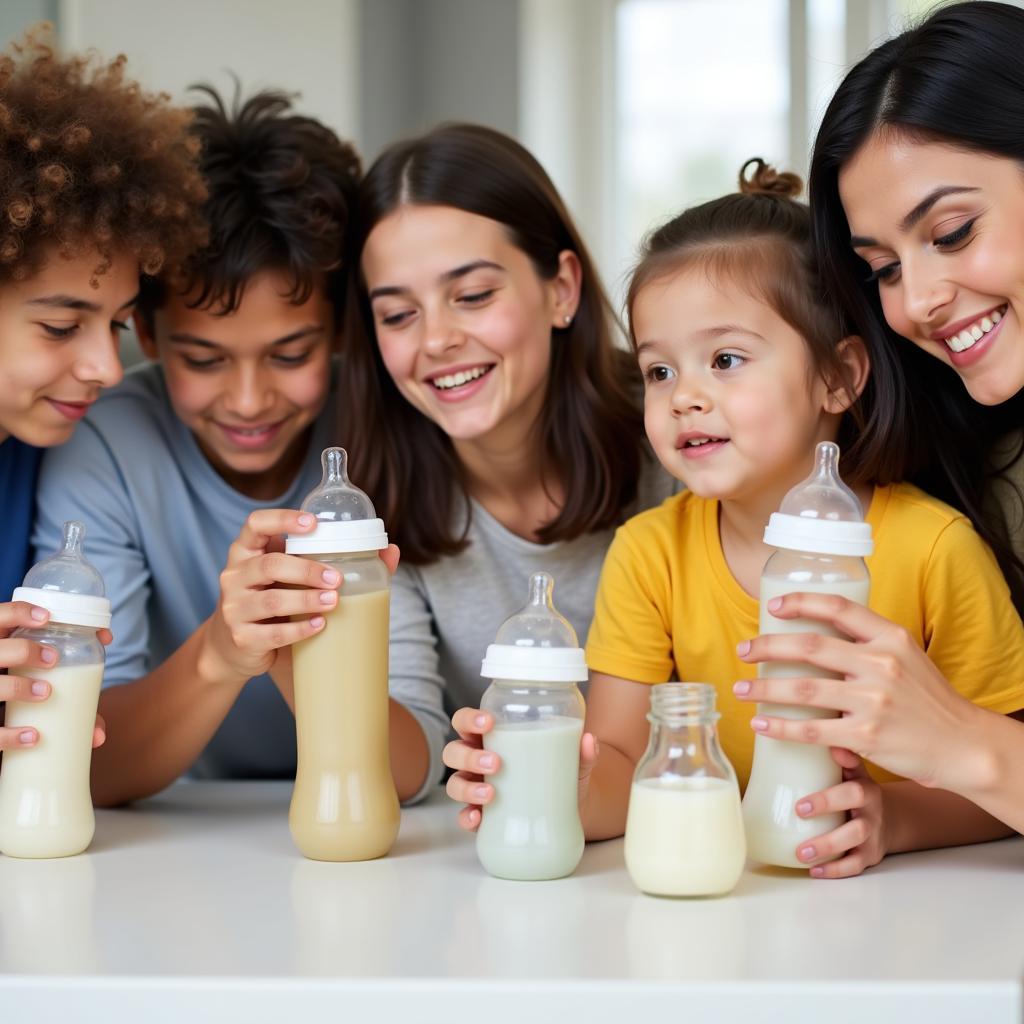Choosing the right feeding bottle for your baby is an important decision. Two popular options are glass feeding bottles and plastic feeding bottles. Both have their pros and cons, and understanding the differences can help you make the best choice for your family.
Glass Feeding Bottles: A Classic Choice
 Glass feeding bottle
Glass feeding bottle
Glass feeding bottles have been a trusted choice for generations. They are made from naturally inert materials like borosilicate glass, which is heat-resistant and doesn’t leach harmful chemicals into your baby’s milk.
Here are some advantages of using glass feeding bottles:
- Chemical-free: Glass is free of BPA, phthalates, and other potentially harmful chemicals found in some plastics. This makes it a safe and healthy option for your baby.
- Easy to clean: The smooth surface of glass makes it easy to clean and sterilize. Glass bottles are also dishwasher-safe, making them convenient for busy parents.
- Durable: Glass bottles are less prone to scratches and discoloration compared to plastic bottles. This means they can withstand repeated washings and sterilizations, lasting for multiple children.
- Sustainable: Glass is a recyclable material, making it an environmentally friendly choice.
However, glass bottles also have some drawbacks:
- Breakable: Glass bottles can break if dropped, posing a safety hazard.
- Heavier: Glass bottles are heavier than plastic bottles, which can make them difficult for some babies to hold.
Plastic Feeding Bottles: Lightweight and Convenient
 Plastic feeding bottle
Plastic feeding bottle
Plastic feeding bottles have gained popularity due to their lightweight and durable nature. They are made from various plastics, including BPA-free options.
Here’s why plastic feeding bottles might be suitable for you:
- Lightweight: Plastic bottles are lighter than glass, making them easier for babies to hold and for parents to carry around.
- Durable: They are less likely to break compared to glass bottles, making them a safer option, especially when babies start holding their own bottles.
- Variety of options: Plastic bottles come in various shapes, sizes, and designs, with features like anti-colic nipples and different flow rates to suit different needs.
However, there are some concerns associated with plastic bottles:
- Chemical leaching: Some plastic bottles, especially older ones, may contain BPA or other chemicals that can leach into milk, particularly at high temperatures. It’s crucial to choose BPA-free options.
- Scratches and odor absorption: Plastic bottles can get scratched over time, providing a breeding ground for bacteria. They can also absorb odors from milk, making them harder to clean thoroughly.
Choosing the Right Bottle: Factors to Consider
 Parents choosing baby bottles
Parents choosing baby bottles
The best feeding bottle for your baby depends on your individual needs and preferences. Here are some factors to consider:
- Safety: Always prioritize BPA-free options, whether you choose glass or plastic bottles.
- Lifestyle: Consider your lifestyle and how often you’ll be washing and sterilizing bottles. If convenience is key, dishwasher-safe and durable options are ideal.
- Baby’s grip: If you’re concerned about your baby’s grip, lightweight plastic bottles might be more suitable.
- Budget: Glass bottles tend to be more expensive than plastic bottles.
- Environmental impact: If sustainability is a priority, glass is a more eco-friendly choice.
Conclusion: Making the Informed Choice
Ultimately, the best feeding bottle is the one that you feel most comfortable and confident using. Both glass and plastic bottles have their merits, and by carefully considering the factors discussed above, you can make an informed decision that best suits your baby’s needs and your family’s lifestyle.
Frequently Asked Questions (FAQs)
1. Are glass feeding bottles safe for newborns?
Yes, glass bottles made from borosilicate glass are safe for newborns. They are heat-resistant and don’t leach harmful chemicals.
2. How do I prevent plastic bottles from scratching?
Use soft-bristled brushes and gentle detergents when cleaning plastic bottles. Avoid using abrasive cleaners or harsh scrubbing.
3. Can I heat milk in a plastic bottle?
It’s best to warm milk in a pot on the stove or using a bottle warmer. Avoid heating milk directly in a plastic bottle, especially in the microwave, as this can cause uneven heating and potential chemical leaching.
4. How long do glass feeding bottles last?
With proper care and cleaning, glass bottles can last for multiple children.
5. Are there any alternatives to glass and plastic bottles?
Yes, there are silicone feeding bottles available, which are known for their flexibility and durability.
Need further assistance? Contact us at:
Phone Number: 02838172459
Email: truyenthongbongda@gmail.com
Address: 596 Đ. Hậu Giang, P.12, Quận 6, Hồ Chí Minh 70000, Việt Nam.
Our customer service team is available 24/7 to assist you.